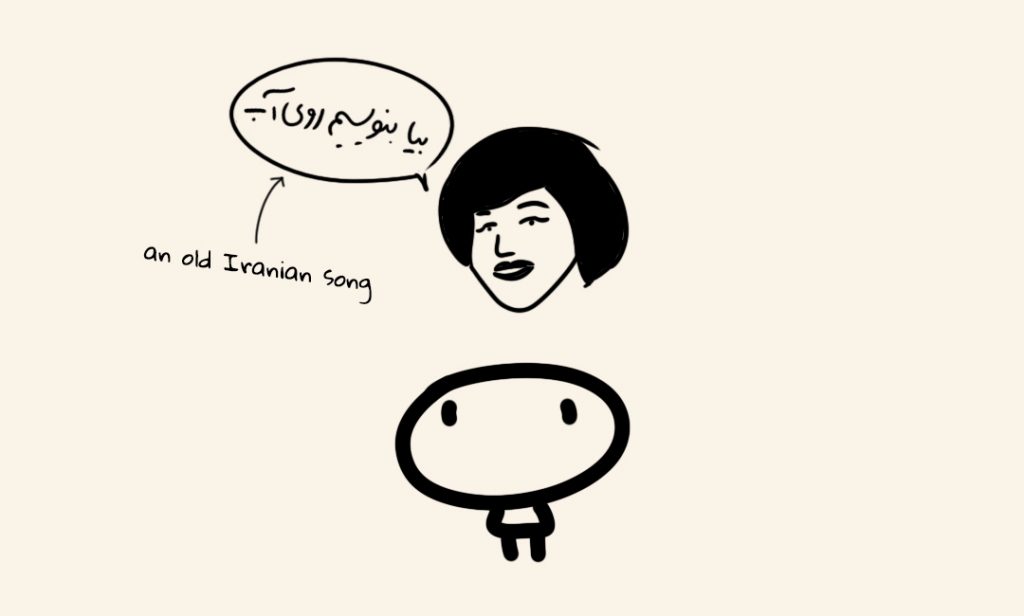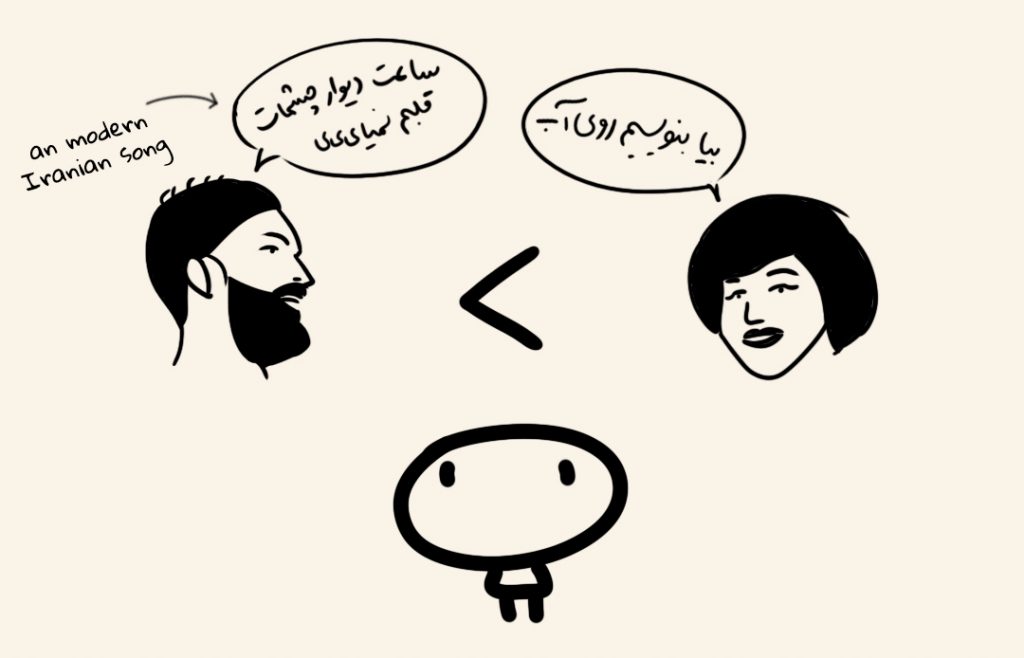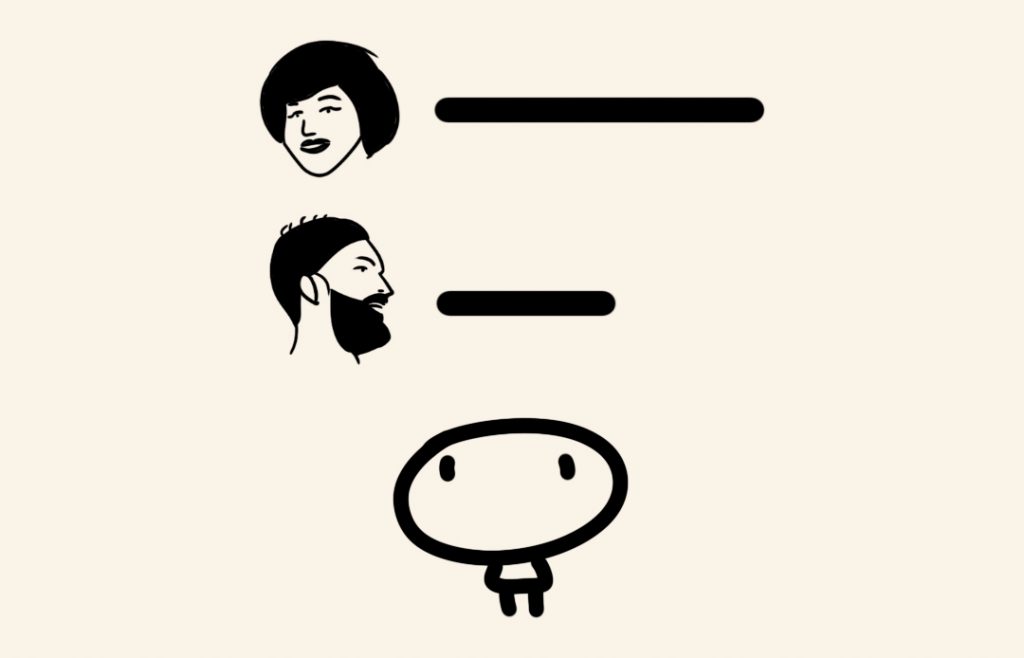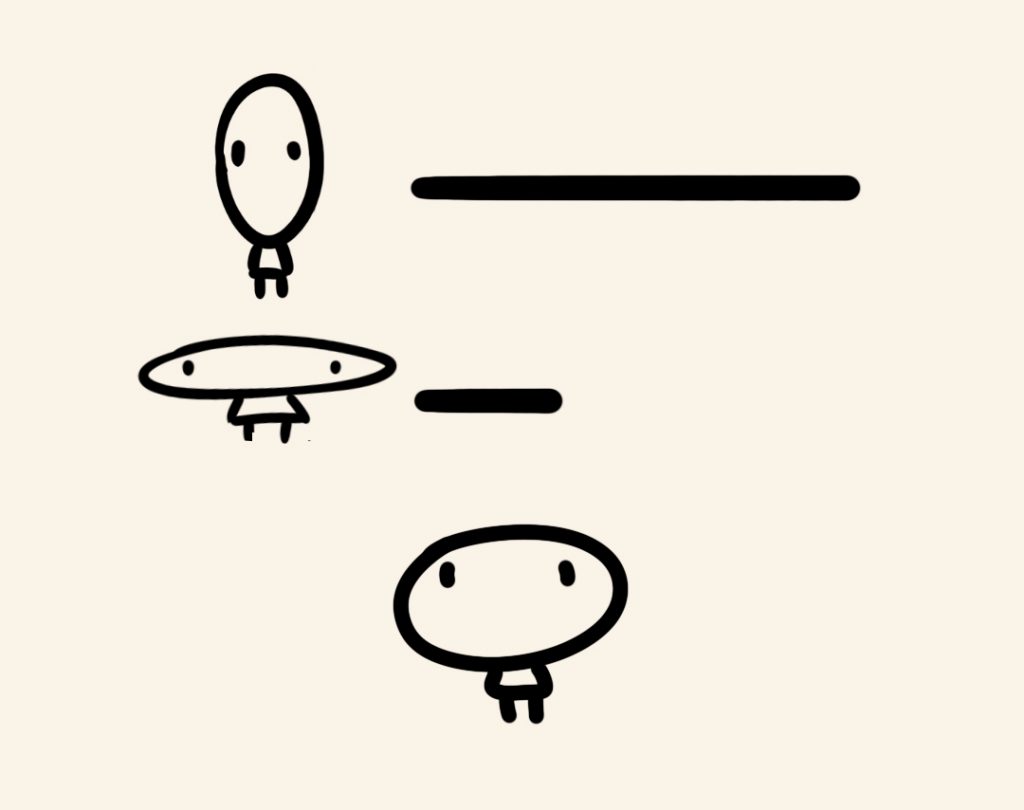Wisey Stories: False Consensus Effect

Wisey loves traditional Persian music.

In Wisey’s opinion, old music is a hundred times better than modern music.

Wisey thinks most people have the same opinion, meaning most of society prefers old music.

Wisey thinks himself a liberal, he has liberal thoughts and wants to vote for “Liberal man”.

Wisey thinks most people are of the same opinion and will vote for liberal man.

With more assessment, we understood that Wisey usually commits the cognitive error “The false consensus effect”.
People desire to evaluate other people’s agreement with them in terms of their faiths, beliefs, opinions and actions more than what it really is. In other words, they’re inclined to think that their belief or preference, is more common compared to their rival’s belief or preference.
Where does the false consensus effect come from? A social psychologist called Solomon Asch found a mechanism to describe this cognitive bias:
When people think of their own and other people’s preferences, they usually are not aware that their basis of comparison might be different, or as this psychologist put it, the subject that is being judged is different.

For example if you ask Wisey to compare old music with new ones by bringing examples, he brings up songs from the past that are very good (A neutral viewer would approve) and would name the worst modern songs; on the contrary, a person who loves modern music would base their comparison on other songs. Such a situation also happens in politics.
People with different opinions from ours, might have a different subject to judge by. (Might base their judgment on something else) not understanding this point, might cause misunderstanding and long-term feuds. It is usually advised, that the people involved put themselves in each-other’s shoes and see the situation from the other’s perspective. It’s easy to say but hard to actually do. However, a real wise person tries to differentiate between the conflicts over facts and interpretations and the conflicts over values and preferences.
Reference:
Ross, L., & Ward, A. (1996). Naive realism in everyday life: Implications for social conflict and misunderstanding. In T. Brown, E. S. Reed & E. Turiel (Eds.), Values and Knowledge (pp. 103–135)
